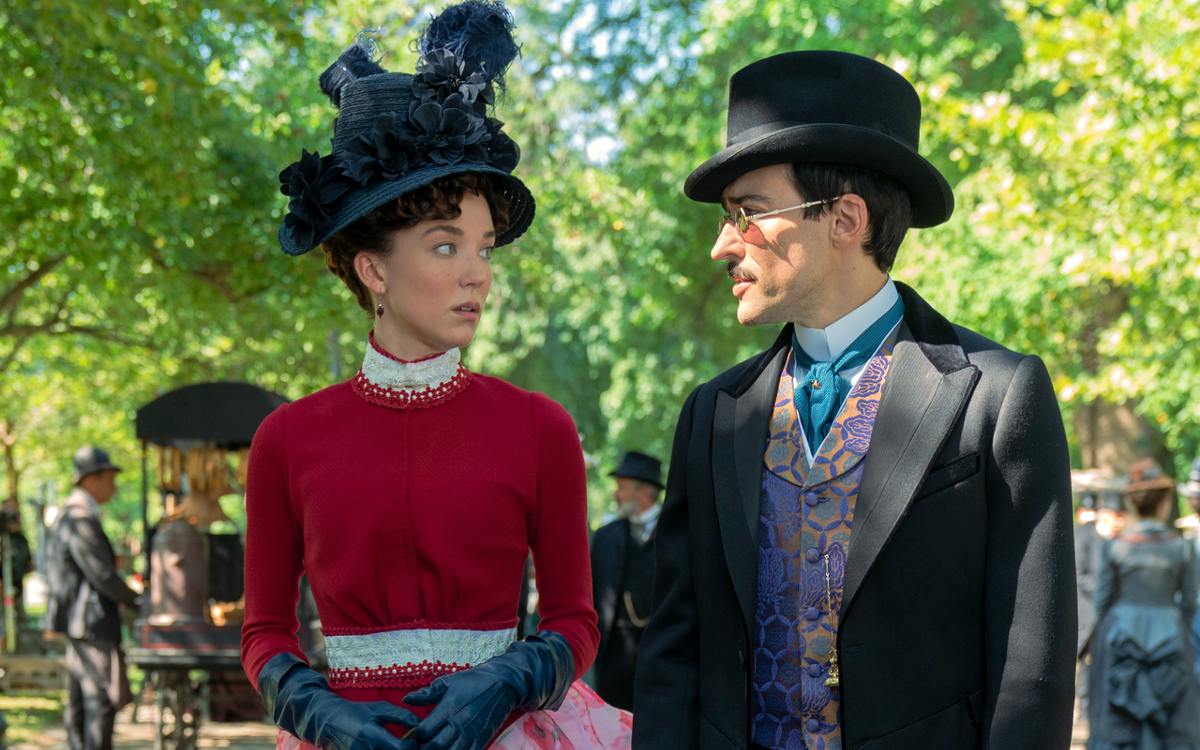‘The Gilded Age’ Just Took a Shocking Turn
Who saw that one coming?

Overall Max’s The Gilded Age gives us pretty low-stakes drama. In this week’s episode, however, Maud Beaton pulled the rug out from under Oscar van Rhijn, altering his family forever.
Since the beginning of The Gilded Age, Oscar van Rhijn (Black Ritson) has been a bit of a schemer. He’s a wealthy, unmarried white man who comes from old money. Society doesn’t ask a lot from him, only to marry, carry on the family name, and manage the van Rhijn fortune. As a closeted gay man in an era where being queer was not discussed, Oscar plots for a marriage that can make him richer. Instead of marrying for attraction and love, as he cannot do, Oscar looks for the dollar signs behind the bride. He chased after the younger (and wealthier) Gladys Russell (Taissa Farmiga) only for the Russells to see right through Oscar’s motives.
In season two, Oscar shifted his sights to a new debutant in town, Maud Beaton (Nichole Brydon Bloom). Although Oscar isn’t in love with her, he does enjoy Maud’s company. Plus, the rumors of her vast wealth don’t hurt her appeal. In episode 7, “Wonders Never Cease,” The Gilded Age reveals Oscar wasn’t the manipulative master he thought he was.
Who is Maud Beaton?
Early in season 2, Maud Beaton appeared in the rich playground known as Newport. Everyone was curious about her as she had just returned from Europe, trying to get over the death of her mother. Rumors swirled Maud was the illegitimate child of a man with vast wealth. Most believed robber baron Jay Gould (a real-life figure that inspired another The Gilded Age character, George Russell) to be her father. Oscar saw a pretty face and bags of money, so he became her friend. Things went great between the two and Oscar believed that they could have a platonic, but happy enough, marriage. And he would add more money to the van Rhijn fortune.
Maud tells Oscar that dealing with her stocks and investments is too much for her brain to handle. Oscar believes numbers to be too much for the young woman, so he gallantly volunteers to accompany her and explain things to her. During the meeting with Maud and Mr. Crowther, Oscar realizes he can turn a sizeable profit by investing in the railroad project himself without Maud’s knowledge. Mr. Crowther tries to talk Oscar out of it, but Oscar’s vanity causes him to double down on his initial investment and hand over more money. He promises Maud will benefit from the profits too.
Maud’s visit to her sick aunt in Newport is taking longer than expected. Oscar can’t seem to reach her and he’s ready to propose. He visits the house he always picked her up from, only to find she never lived there. Maud conned him and made off with a huge chunk of the van Rhijn money. I do not envy Oscar for having to tell his mother, Agnes (Christine Baranski) that he lost most of her money. This woman thrives on being a judgey, old-money widow. How would she live without looking down on other people?
Was Maud Beaton a real person?
Maud Beaton was not real. However, the creators of The Gilded Age confirmed they based the character on con artists of history, mainly Cassie Chadwick. Born in 1857 as Elizabeth Bigley, Chadwick went under the alias to scam the wealthy out of money. She claimed to be the illegitimate daughter of Andrew Carnegie, who was a wealthy businessman who specialized in the steel industry. Chadwick convinced people Carnegie gave her huge amounts of money. When the rumor spread, banks offered Chadwick loans and business opportunities just on these claims.
Chadwick acquired over $1 million from investment bankers and other wealth seekers looking to join forces with Carnegie money. Bankers avoided contacting Carnegie because Chadwick claimed her existence was an embarrassment to him. They also assumed any debts would be covered by Carnegie. Using the ill-gotten money, Chadwick lived her best life with her husband and children. When one banker realized how much money Chadwick had been loaned, he called in the debt. That’s when things unraveled for Chadwick. Her husband divorced her and took off with their daughter to Europe. Chadwick went to trial, which the real Carnegie witnessed, and was sentenced to prison for her crimes. At the age of 50, Chadwick died in prison.
We don’t know the fate of Maud Beaton in The Gilded Age just yet, but I’m hoping she made it to Europe and will live the high life on Oscar’s money. Although it makes the future of the van Rhijns and their station in life very unclear.
(featured image: Max)
Have a tip we should know? tips@themarysue.com